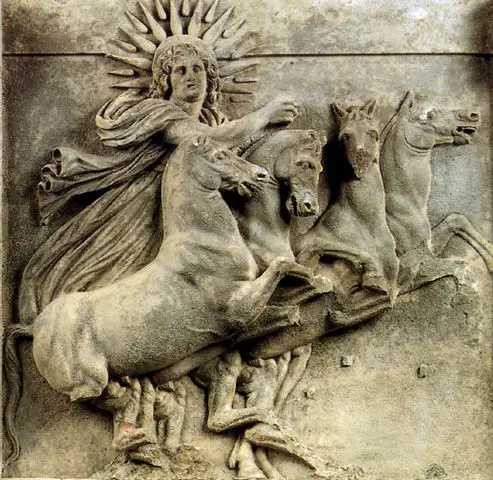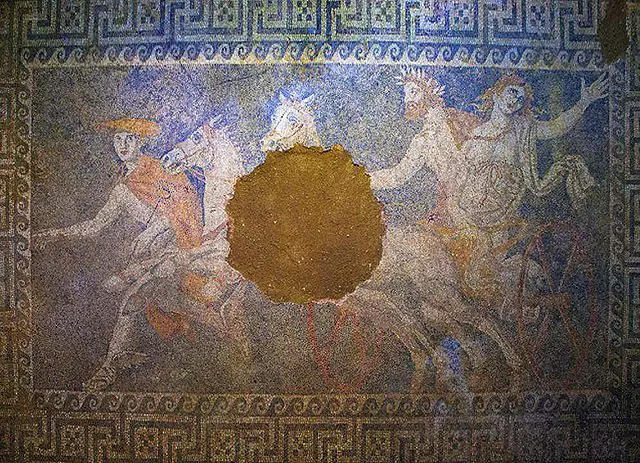| Born | 15th of October, 1926 |
| Died | 25 of June, 1984 |
| Famous Quote | “In its function, the power to punish is not essentially different from that of curing or educating.” |
| Known For | Famous philosopher studying how power and knowledge intersect |
| Region of World | France/Europe, 20th century |
| Further Reading | The 3 Reasons Friedrich Nietzsche Never Married |
Famous French philosopher Michel Foucault is often one of the hardest philosophers to understand and read. This is because of the method in which he writes along with the sources he employs. However there are 3 tricks to easily read and understand his theories.
There are 3 Tricks to easily read and understand the theories of Michel Foucault. First, before Foucault readers should read Nietzsche’s work. Second, to easily understand Foucault his work should be read in a specific order. Third, readers should know how Foucault’s main theory of Will To Knowledge differs from Will To Power.
By performing these three tricks anybody can easily read and understand the theories and works of Michel Foucault. Just jumping into Foucault’s work without any background is often a bad idea.
Here at The History Ace I strive to publish the best history articles on the internet. If at the end you enjoyed this article consider subscribing to the free newsletter and sharing around.
Without further ado, here are the 3 tricks to easily read and understand the theories of Michel Foucault.
Trick 1: Before Reading Foucault You Should Read Friedrich Nietzsche
Before you read Michel Foucault it’s important to read his main inspiration, 19th century German philosopher Friedrich Nietzsche. This is because Foucault’s theories build off Nietzsche.
When on vacation in Italy in 1953 with his boyfriend Foucault would obtain a copy of Nietzsche’s Untimely Meditations. Foucault would later state this was a pivotal moment in his life as it opened up his eyes to power relations throughout history.
Within Untimely Meditations Nietzsche provides four essays. These essays seek to highlight the limits of current level of knowledge to provide descriptions of our modern life.
Out of these four essays the most important one to understanding and easily reading Foucault is Nietzsche’s “One the Use and Abuse of History for Life.” In this essay Nietzsche provides a roadmap for how history and knowledge can be used to control and manipulate a society.
This essay profoundly impacted Foucault who began to recognize the limits of historical knowledge. Foucault began to work on his first publication Madness and Civilization (1960).
Within this book Foucault rejects the claim that people today are better off in society than they were in the past. Using the lens of medicine Foucault demonstrates that people in the past would not be classified as insane and confined to institutions as they were during Foucault’s time.
This theory builds directly off the work of Friedrich Nietzsche. As such any prospective reader of Foucault should read Nietzsche’s work before starting Foucault.
If you perform this trick you will be able to easily read and understand Michel Foucault.
Trick 2: To Easily Read And Understand Foucault His Work Should Be Read In A Specific Order
One of the main tricks to easily reading and understanding the theories of Michel Foucault is to read his 4 major works in the order in which they were published.
Foucault’s theories become more abstract and general in his later works. It is during the early years of his professional career that his work can be easily approached by normal readers.
You don’t have to read every single sentence that he wrote. Rather you must know the main purpose of each book along with the history sources he uses to demonstrate the thesis.
Here is a brief summary of each of his 4 major works in chronological order.
Madness and Civilization (1960)
The first book of Michel Foucault looks at the history of how madness was perceived in society. Foucault looks at historical evidence of how insane people were treated during the Renaissance, Classical age, and Modern era.
The thesis of Madness and Civilization is that in treating mental illness or madness our modern era is actually more barbaric than eras of the past.
To defend this claim Foucault looks at how in the past primary source historical evidence demonstrates that madness was seen as a divine force. That as society progressed through the enlightenment and modern era people began to “other” those suffering from madness.
The main point you need to understand about this book is that Foucault claims that historical knowledge and contemporary society are interlinked. This provides the foundation for his later works.
The Birth of the Clinic (1963)
In his next book The Birth of the Clinic Foucault takes the methodology of power being related to knowledge first demonstrated in his Madness and Civilization book and builds upon it.
The thesis of The Birth of the Clinic is that in the modern era doctors became perceived experts in their field. That these doctors held all the knowledge and could begin the process of objectifying the human body. This is what Foucault came to state as the “Medical Gaze.”
This medical gaze is important to understand as it sets the foundation for all of Foucault’s later works. The medical gaze gave doctors the power over the human body, and with the human body came the power over people who relied upon that knowledge.
In essence what we see here is the creation of Foucault’s main theory of the Will to Power. Remember this theory as it will come up time and time again in Foucault’s other works.
The Order Of Things (1966)
Foucault’s next book takes the methodology of Will to Power and turns up the dial on the level of abstraction. For example, the whole first section of the book is spent reviewing the above painting in abstract terms.
The thesis of The Order of Things is that human beings naturally look to create pools of knowledge called paradigms around fields of study. That these knowledge pools give certain groups of people power over subsequent thinkers.
Simply put, The Order of Things presents the thesis that Foucault’s theory of The Will to Knowledge can be applied to all fields of study throughout history. This book took Foucault’s theory and drastically expanded its scope.
Discipline and Punish(1975)
Now that Foucault has an overarching theory of how society and power were structured to create concepts of power he then applied it towards his contemporary society. This came from his next book was Discipline and Punish.
Probably his most famous book Discipline and Punish presents the thesis that the concept of discipline and punishment actually became more barbaric over time as society found it needed to increase its power and control over people.
This book is the one that has profoundly influenced society. It remains one of the most cited philosophical-historical texts across the world.
Here Michel Foucault is asking the audience to question why prison, punishment, and discipline has increased dramatically over the modern era. As such this work caused quite a stir in nations around the world and continues to have an impact today.
Trick 3: Knowing How Foucault’s Main Theory Of Will To Knowledge Differs From Will To Power.
Another trick to easily read and understand Michel Foucault is to know how his theory of Will to Knowledge builds off Nietzsche’s Will to Power. This is one of the easiest tricks to reading and understanding Foucault.
Nietzsche’s Will to Power makes the claim that human beings naturally try to control or dominate their immediate surroundings; they have a will to power and dominate/control their life. In essence Nietzsche’s view on the human condition is that people turn will into power in order to control their surroundings.
Michel Foucault however builds upon this theory by adding another intermediary step. Foucault’s theory on Will to Knowledge positions that Human beings first try to gather as much information surrounding a concept as possible, then they use that knowledge to accumulate power.
Simply put, Nietzsche believes that humans seek power. Foucault believes that humans seek knowledge, which in turn creates power.
When you’re reading Michel Foucault remember that Foucault is trying to look closely at how information and the control of it leads to power. This trick will allow you to easily read and understand the theories of Michel Foucault.
Conclusion
There you have it; an entire article dedicated to the 3 tricks to easily read and understand Michel Foucault.
Foucault’s theories have profoundly impacted the development of our modern world. He remains one of the most popular and misunderstood philosophers of the post WWII era.
I hope you enjoyed this article. Here at The History Ace I publish only the best history articles. If you would like to stay up to date on everything, consider subscribing to the free newsletter.
Further, you can check out the other articles below.
-
How The American Revolution Changed The World

Here is how the American Revolution changed the world. Many people are not aware of just how important this event actually was.
-
Why The Roman People Loved Chariot Racing

Why did the Roman people love chariot racing? Well it all comes down to these 3 reasons.
-
The Design and Color of Roman Chariots

What was the design and color of Roman Chariots? Were they faster or slower then normal chariots? Well here is everything!
Until next time,
Nick